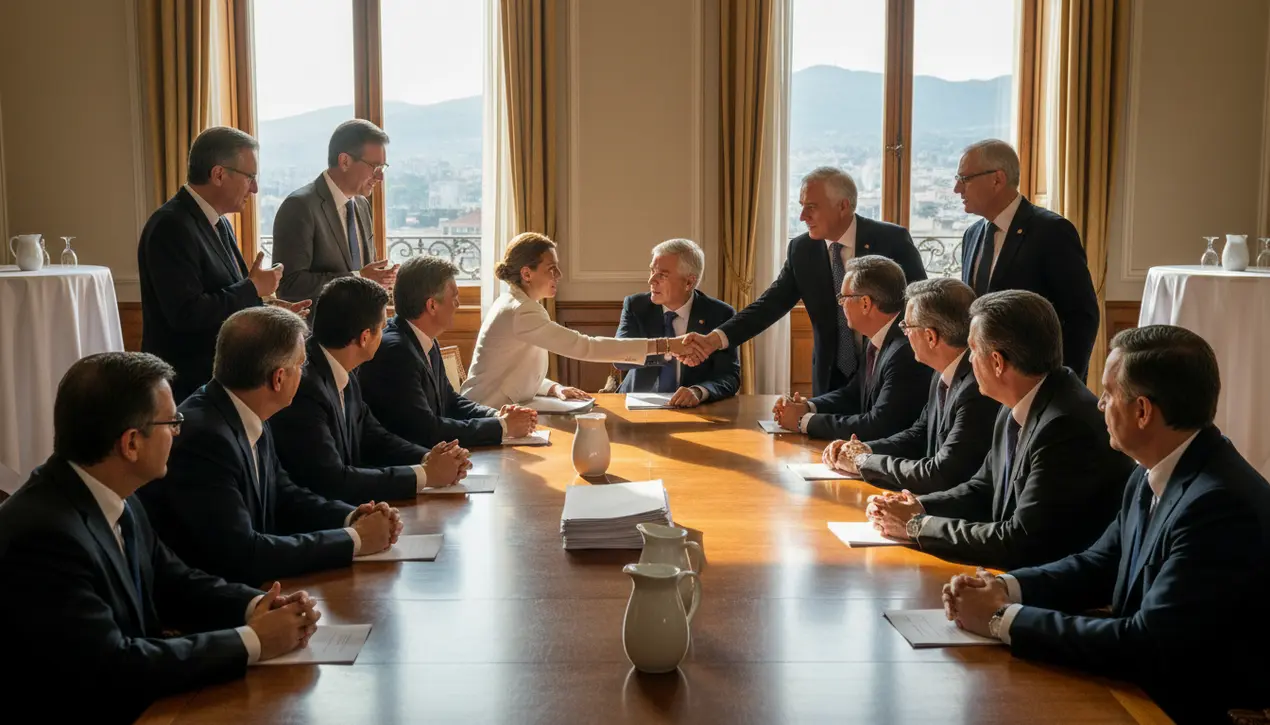
PoliticsdiplomacyBilateral Relations
International Leaders Reaffirm Commitment to Economic Cooperation at Summit
RO
Robert Hayes
2 hours ago7 min read
While the prevailing narrative of our time suggests a global retreat into nationalist fortresses and zero-sum competition, the recent summit in Colombia served as a powerful, if underreported, corrective. Against a backdrop of geopolitical strain, leaders from European, Latin American, and Caribbean nations did not merely pay lip service to cooperation; they deliberately doubled down on it, signaling a strategic commitment to a multi-polar order built on economic partnership rather than isolation.This is not the first historical moment where the international system has faced centrifugal forces. One is reminded of the interwar period, where protectionist policies and inward-looking agendas exacerbated a global depression and paved the way for greater conflict.The leaders in Bogotá seem to have internalized this lesson, choosing a path reminiscent of the post-World War II architects who built institutions like the Marshall Plan, understanding that shared prosperity is a prerequisite for lasting stability. The specific agreements on the table—likely encompassing trade facilitation, sustainable infrastructure investment, and coordinated digital governance—represent more than bureaucratic checkboxes.They are the foundational pillars for a transatlantic-economic bridge designed to withstand the shocks of great-power rivalry. Analysts from the European Council on Foreign Relations note that for the EU, this deepened engagement with Latin America is a strategic imperative to diversify supply chains and secure critical resources, reducing over-reliance on single partners.Conversely, for nations in Latin America and the Caribbean, the summit offered a pathway to attract the kind of high-quality investment and technology transfer that can fuel green transitions and industrial modernization, moving beyond a historical reliance on commodity exports. The potential consequences are profound.A successfully reinforced EU-Latin America-Caribbean axis could create a formidable bloc advocating for rules-based trade and climate action, acting as a counterweight to more transactional international relationships. However, the challenges are equally significant.Domestic political pressures in several member states, from both the far-left and far-right, often pull against international entanglements. Furthermore, the sheer bureaucratic complexity of aligning regulatory standards across dozens of diverse economies remains a Herculean task. The true test will be whether the communiqués signed in Colombia can be translated into tangible projects that deliver jobs and growth to citizens in Lisbon, Buenos Aires, and Kingston alike, thereby building the popular legitimacy necessary for this ambitious partnership to endure.
#diplomacy
#economic cooperation
#international summit
#Colombia
#Europe
#Latin America
#Caribbean
#featured
Stay Informed. Act Smarter.
Get weekly highlights, major headlines, and expert insights — then put your knowledge to work in our live prediction markets.
Related News
Comments
Loading comments...
© 2025 Outpoll Service LTD. All rights reserved.